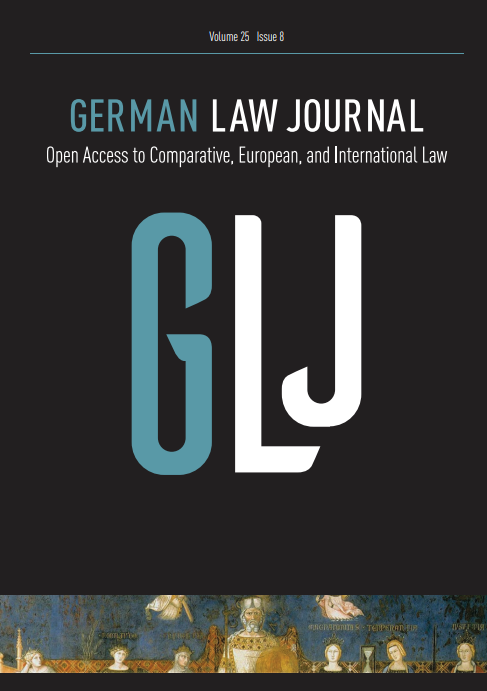Special Issue Launch seminar
Legal Infrastructures: Towards a Conceptual and Empirical Framework (German Law Journal)
Programme
| 14:15-14:25 | Introduction to the special issue by co-editor, Thomas Gammeltoft-Hansen |
| 14:25-15:10 |
Short presentations of select articles
|
| 15:10-15:45 |
Discussion and Q&A
|
| 15:45 | Reception and drinks |
Moderator: Nora Stappert, Center for Global Mobility Law, UCPH
Time: 25 April 2025 14:15-15.45 (with small reception afterwards)
Place: MOBILE meeting room, Njalsgade 76, building 6B, 2nd floor
For online participation, please contact Lin Solvang at liso@jur.ku.dk to receive a Zoom link.

Legal Infrastructures: Towards a Conceptual and Empirical Framework
The last decades have seen an increasing interest in “infrastructures” as an analytical lens adopted across different disciplines to explore everything from physical assemblages such as rail systems and borders to socio-technical structures such as digital information flows, financial transactions or human mobility. Within this literature, however, the fundamental role that law plays in shaping these structures remains under-explored. Vice versa, within legal scholarship the ‘infrastructural turn’ has yet to find proper foothold.
At this seminar, we launch a special issue on legal infrastructures that has been recently published in the German Law Journal. On the one hand, the special issue empirically examines the various links between legal regulation and socio-material infrastructures, with a focus on global mobility law. Contributions to the special issue thus include analyses of travel visas as an ubiquitous legal infrastructure over cruise ships to citizenship and digital-legal infrastructures of border control.
On the other hand, the special issue applies insights from scholarship in other disciplines to explore and theorise the infrastructural properties of transnational law itself. It argues that, in addition to understanding law as operating in the context of wider socio-material infrastructures, it is possible to think about law as a form of infrastructure in and of itself. Consequently, the special issue draws attention to the interoperation—or lack thereof—between different legal frameworks, how particular interpretations or normative constructs can “flow” across jurisdictional and regime boundaries, and the ways in which existing legal structures predispose new legal initiatives.
